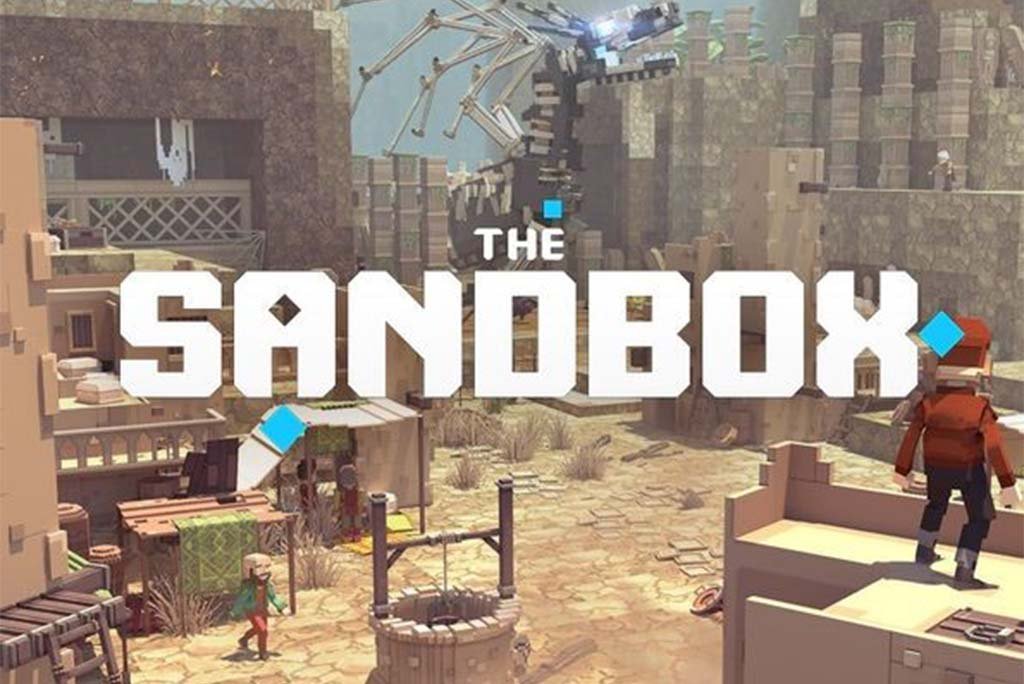Due to rising inflation and its perceived safety, institutional investors have shown a renewed interest in cryptocurrency in recent months. There are dozens of cryptocurrencies, from Bitcoin and Ethereum to Dogecoin and Tether, which might make it difficult to know where to start.
A few of the most well-known cryptocurrency exchanges include Coinbase, Crypto.com, Gemini, and Binance. These exchanges function similarly to stock trading websites or apps, using which users may buy and sell digital assets at the current market price (known as “spot”) or at a specified price (known as “limit”) in the future.
Top 10 Firms with the Best Crypto Solutions and Services
-
Sandbox

Recently, the metaverse has been more interested in The Sandbox, a community-driven platform and virtual reality game. Developers may make money from their blockchain-based numerical assets and interactive content.
Users may buy and sell market-leading assets in its centralized marketplace. Native to The Sandbox is the token known as Sandbox (SAND). You may use the ERC20 utility token to trade LAND and ASSETS inside The Sandbox metaverse. Tokens are used for voting and other administrative functions in The Sandbox DAO.
-
Twitter
Twitter plans to create its crypto team and incorporate the blockchain’s decentralized ledger technology into its social media platform. Twitter’s implementation of Bitcoin tipping for social influencers and others last year was a huge step forward for the cryptocurrency industry.
Despite the lack of official announcements, Twitter’s crypto section will almost certainly collaborate with Twitter’s Bluesky initiative to decentralize social media.
-
Kraken
Kraken is a cryptocurrency exchange that lets users buy and sell cryptocurrencies for fiat cash. It provides detailed market data for each coin. Kraken, another major bitcoin exchange by trading volume, is a frontrunner among cryptocurrency startups.
It allows both leverage and futures trading and more complex order types.
-
OpenSea
User-owned digital products, including collectibles, gaming items, domain names, digital art, and other blockchain-backed assets, may be bought and sold on OpenSea using non-fungible tokens.
The OpenSea team is thrilled to be developing NFTs, a novel digital product that has attracted significant interest from financial backers lately. OpenSea is unique because anybody may trade NFTs worldwide, but the company does not retain physical possession of the goods for sale.
-
Chainalysis
Chainalysis, a blockchain analysis firm, offers compliance and investigative tools to some of the world’s most prestigious financial institutions, corporations, and government agencies.
The company’s financial crime analysts and blockchain experts provide clients with the information they need to make the most informed business decisions possible and increase their bottom line.
Some of the world’s most high-profile cybercrime cases have been solved with the help of its data platform. It enables investigative, compliance, and risk management tools that have been utilized to increase consumer access to cryptocurrencies securely.
-
Coinbase
Coinbase is a startup emphasizing building a crypto economy that will eventually lead to an open, efficient, fair, and secure crypto-enabled financial system. Another one of the fintech solutions.
In the beginning, there was the groundbreaking concept that anybody, wherever in the world, could easily use Bitcoin to send and receive funds. The firm currently provides a reliable and user-friendly platform for participating in the crypto economy.
Their goal is to be the most recognized name in the world when it comes to converting digital cash into and out of local currency. They want to facilitate a worldwide financial system accessible to everyone.
-
GameStop
GameStop is a popular American chain that sells video games, electronics, and related goods. The corporation revealed in 2021 that its developers worked hard on an NFT platform and token built on the Ethereum network.
The Texas-based corporation is a global leader in the video game retail industry. GameStop describes its NFT Marketplace as a non-custodial, Ethereum Layer 2-based Marketplace that lets parties to own their digital assets. These are represented and safeguarded on the blockchain. Loopring, a Layer 2 scaling solution, was custom-designed for the Marketplace.
With Loopring, the GameStop wallet is far more cost- and time-effective than other wallets based on the Layer 1 Ethereum mainnet. Many cryptocurrency wallets, including GameStop’s own, are supported, and users may easily link their wallets to the site. In addition, these NFTs may be swapped among collectors and resold on secondary markets.
-
Uniswap
Uniswap is a business that creates a decentralized mechanism for trading currencies. It is defined by the availability staked liquidity of traded assets. Its interface utilizes smart contracts to provide safe, decentralized on-chain interactions of Ethereum.
-
Grayscale
When it comes to investing in digital currencies, Grayscale is at the forefront. The firm adopted one of the best fintech solutions. It is committed to radically altering the established order of the market’s economic, social, and political structures. Grayscale’s ultimate goal is to be the most reliable ally for investors as they learn about and put money into digital currencies.
-
NEAR Environment
NEAR Protocol is a blockchain-based firm that, in 2020, released its primary net and provided a proof-of-stake blockchain network. The firm provides a decentralized development platform that is optimized for decentralized applications.
These leading Fintech firms will control the cryptocurrency market in the next few years, from trading to storage—delivering superior service by combining the finest features of existing tools and promising new developments in data integration and sharing.
Conclusion
Fraud, identity theft, and money laundering plague fintech. Stopping it takes time. Decentralized ledgers make cryptocurrency transaction records easier to verify. Blockchain records cannot be altered, making fraud prevention cheaper and easier for fintech. Fintech has changed finance. Over the last decade, fintech blockchain technologies have made financial goods and services more appealing to clients. Fintech will benefit from cryptocurrency in the next decade.